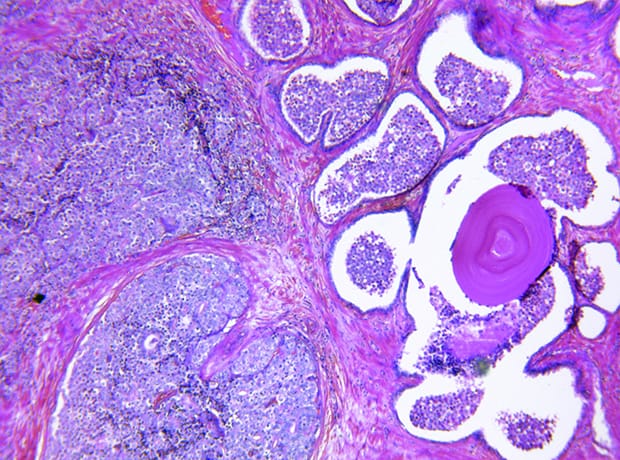More than 150,000 people in the UK suffer from bone cancer, which is often resistant to chemotherapy.
A new type of immunotherapy developed by researchers at University College London (UCL) has shown promising preclinical results in treating bone cancer.
Published in Science Translational MedicineThe OPS-gdT therapeutic platform was more effective than traditional immunotherapy in inhibiting the growth of osteosarcoma, a type of bone cancer.
It affects more than 150,000 people in the UK and is a leading cause of cancer deaths as cancer that begins in or spreads to the bone is difficult to treat as it is often resistant to chemotherapy.
The researchers offered an efficient, cost-effective solution to treat the disease using a small subset of immune cells called gamma delta T (gdT) cells, a type of immune cell that can be made from immune cells from healthy donors.
gdT cells can then act to kill antibody-tagged targets safely from person to person without risking graft-versus-host disease.
Using blood samples from healthy donors, the researchers engineered gdT cells to release tumor-targeting antibodies and immune-stimulating chemicals called cytokines before injecting them into patients with bone cancer.
The researchers tested OPS-gdT in mouse models of bone cancer and found that it was more effective than conventional immunotherapy at suppressing osteosarcoma growth.
Furthermore, when mice were injected with non-genetically engineered gdT cells along with antitumor antibodies, OPS-gdT cells, a bone-sensitive drug, and CAR T cells, the researchers found that OPS-gdT cells were most effective when combined with the bone-sensitive drug.
The research team observed that the treatment halted tumor growth in the mice and that the mice were healthy after three months.
The researchers are currently generating data on the efficacy of OPS-gdT cells in secondary bone cancer and plan to progress to early-stage clinical trials in patients with secondary cancers within the next few years.
Lead author Dr Jonathan Fisher, from UCL Great Ormond Street Institute of Child Health and UCL Hospitals NHS Foundation Trust, said: “This is an exciting step towards discovering potential new treatments.
“We hope that this treatment will not only work for osteosarcoma, but also for other cancers in adults.”






